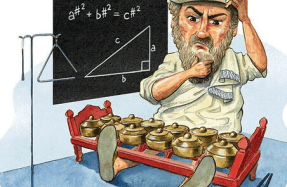The great perfectionist

Jascha Heifetz was a phenomenon. His playing sounded like no one else’s, and his immaculately honed technique and unflappable stage presence created an aura of invincibility. A perfectionist in all things musical, he insisted that ‘the discipline of practice every day is essential. When I skip a day, I notice a difference in my playing. After two days, the critics notice, and after three days, so does the audience!’
As Heifetz saw it, ‘there is no top – there are always further heights to reach’. His preference for fast, flowing tempos was facilitated by a dazzling technique and a clear-focused sound, coloured by a fast-narrow vibrato and subtly warmed by his preference for plain gut (as opposed to steel-wound/metal) D and A strings. Adding to the sensation of unflappable calm were his impassive facial features and no-nonsense, free-flowing bowing action. Although in concert Heifetz produced a luminous sound, on disc (especially in later years) he preferred a relatively close, almost analytical image, free of ambient cushioning.


It was the tantalising gulf between Heifetz’s cool demeanour and the molten intensity of his playing that so fascinated his audiences. The legendary Fritz Kreisler –
You’re reading a preview, subscribe to read more.
Start your free 30 days



